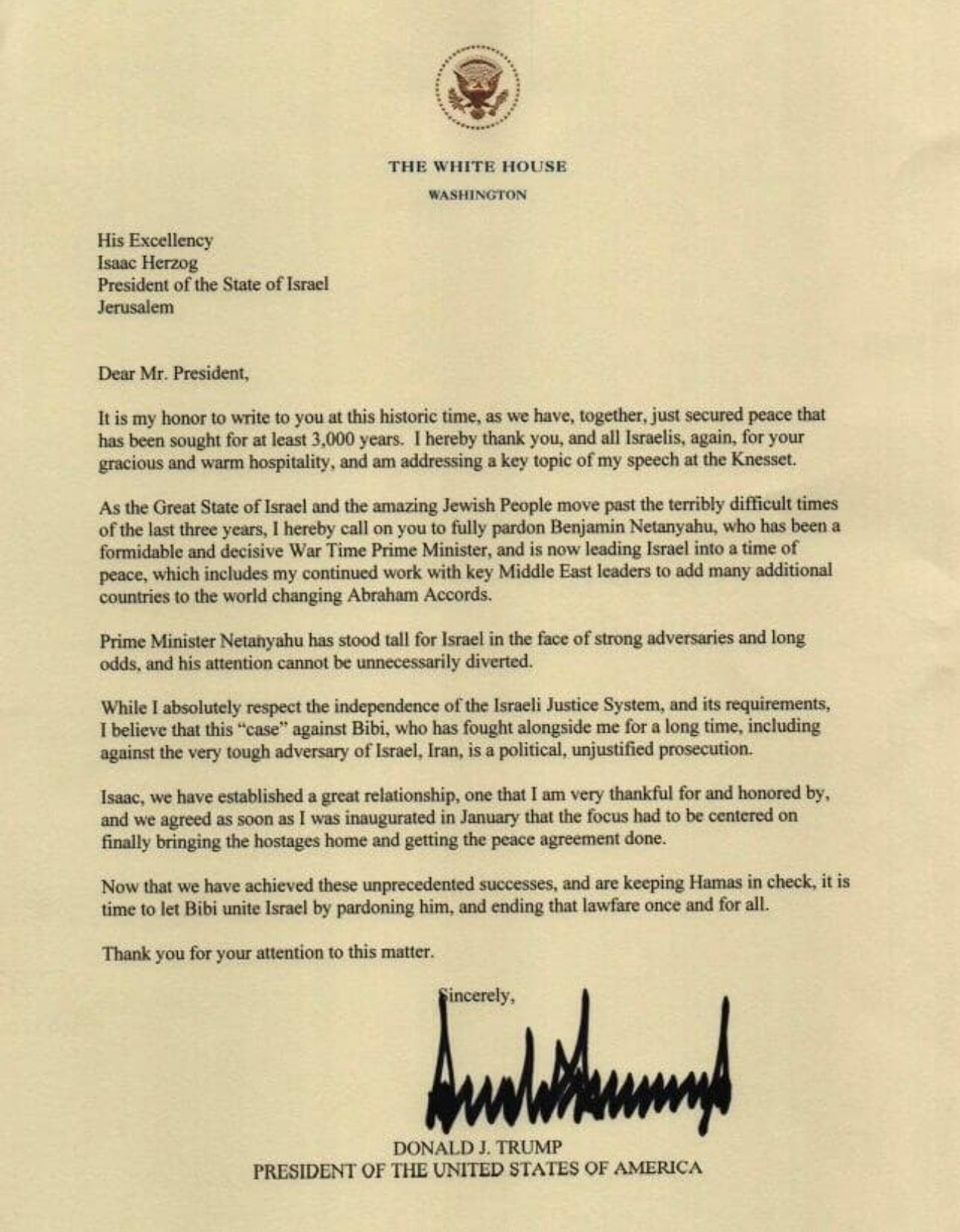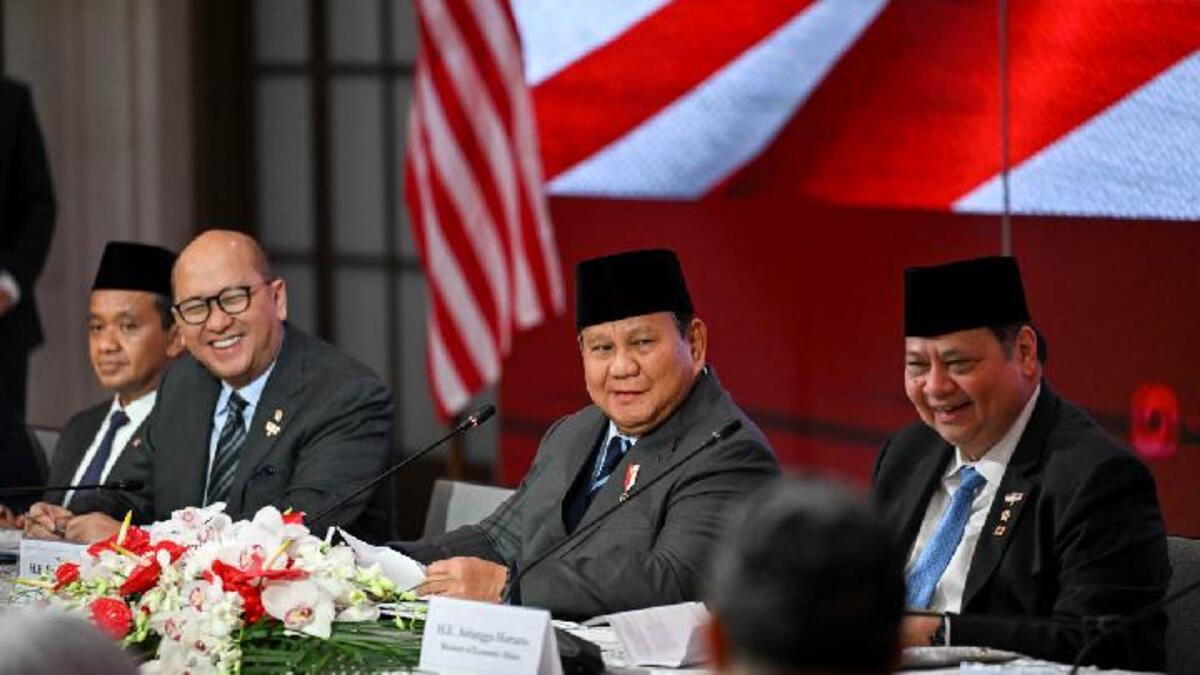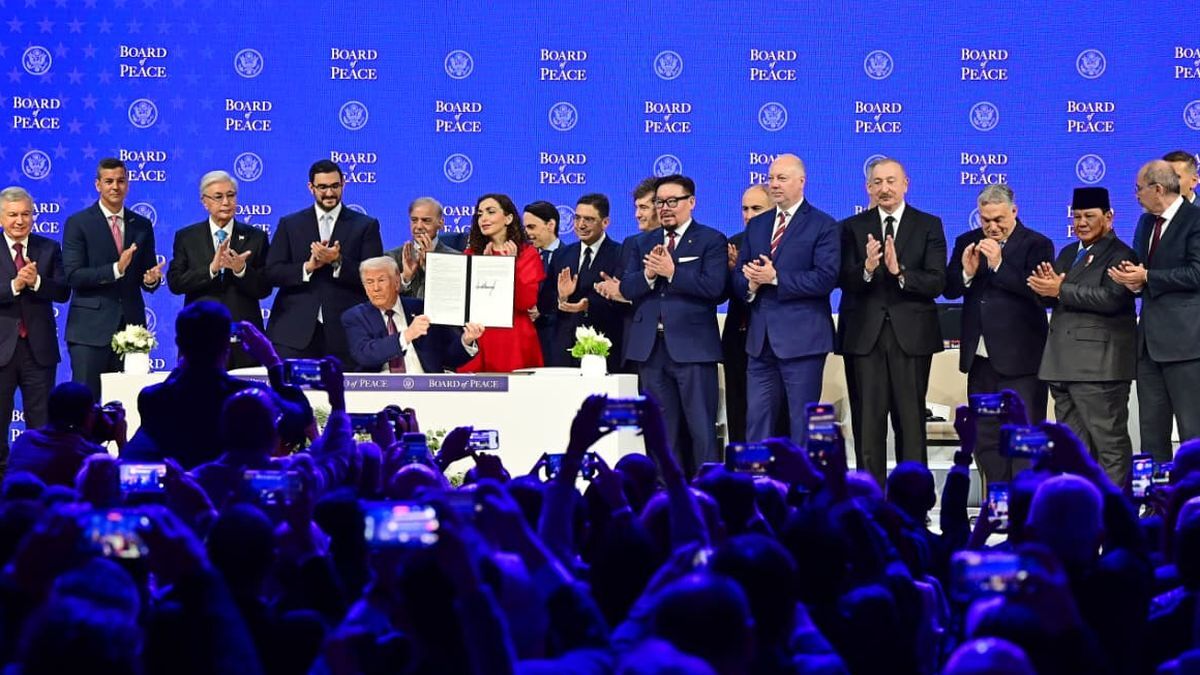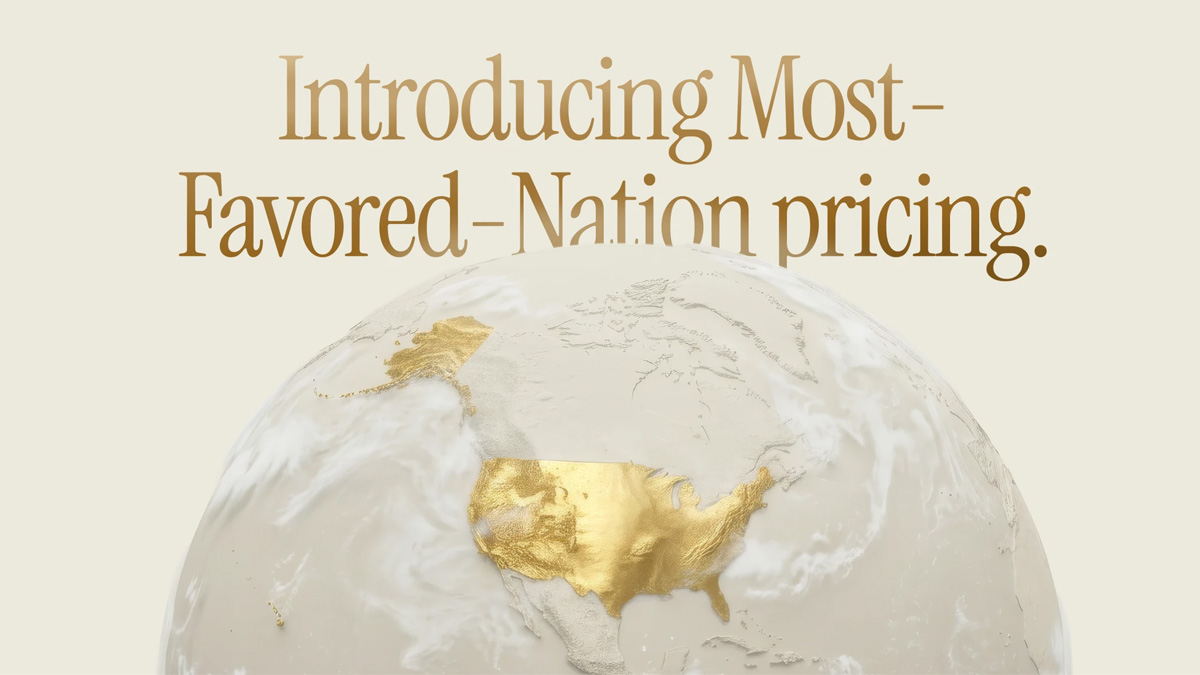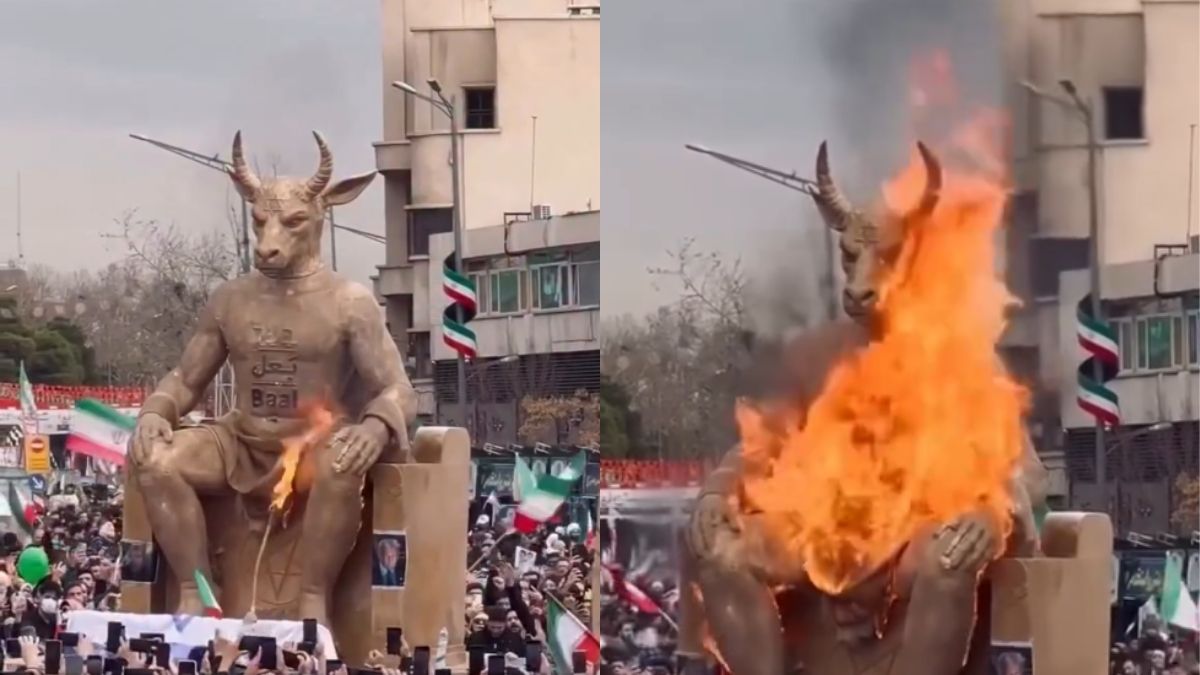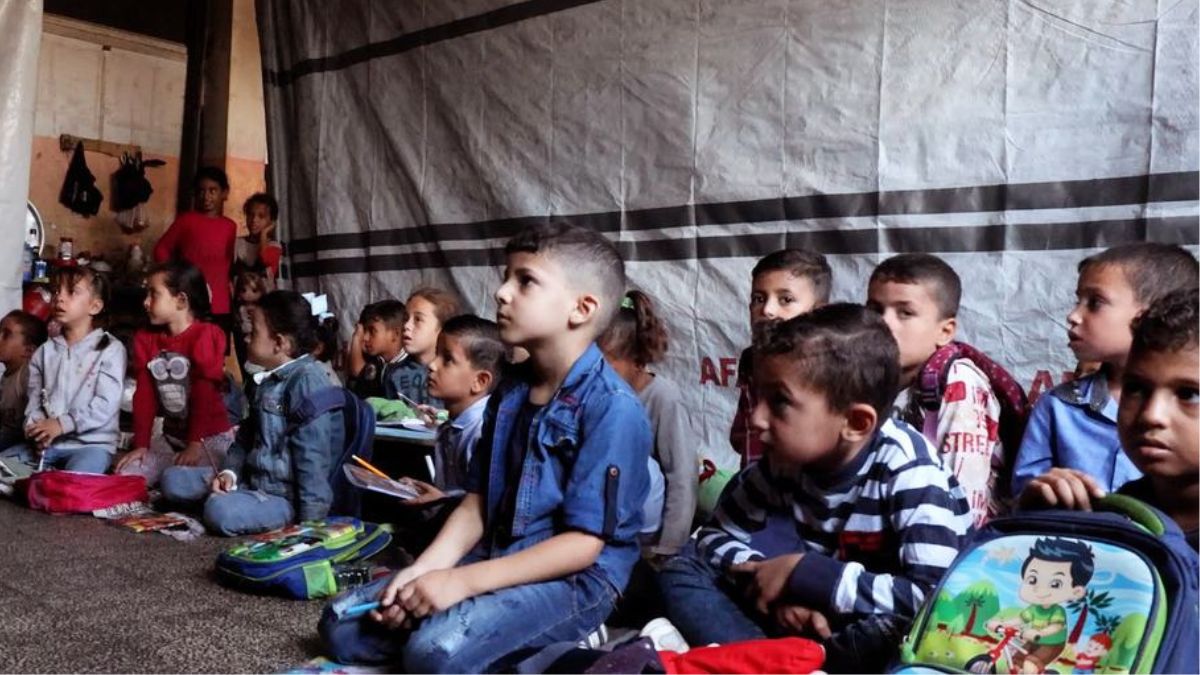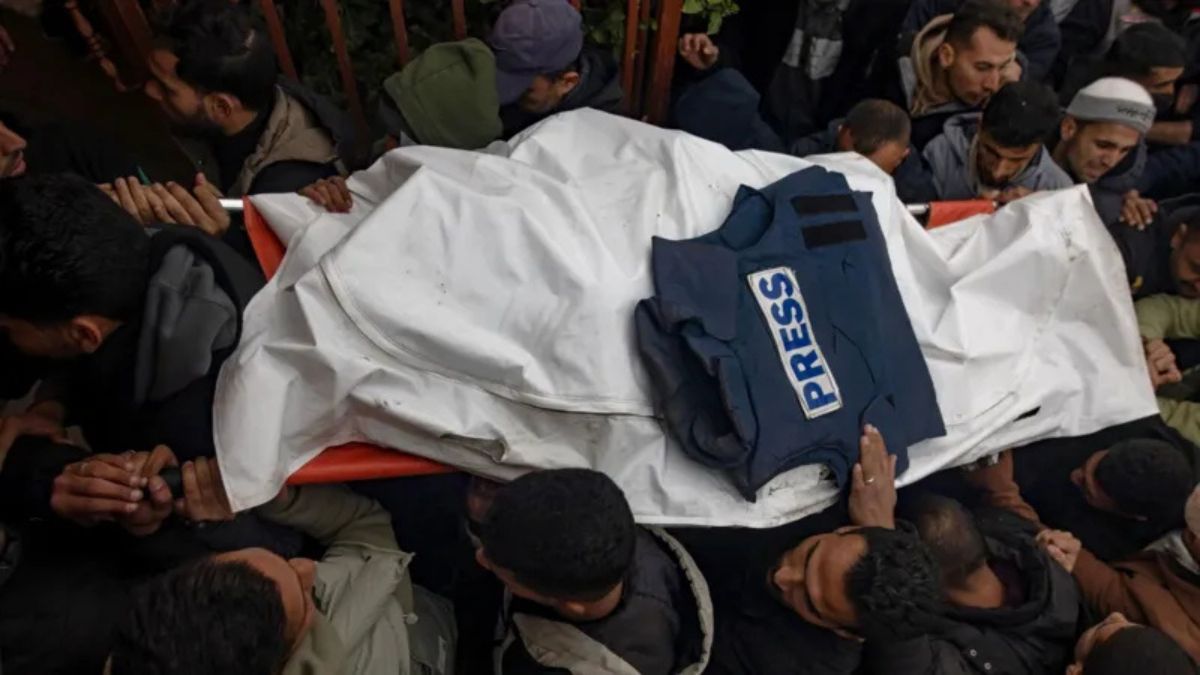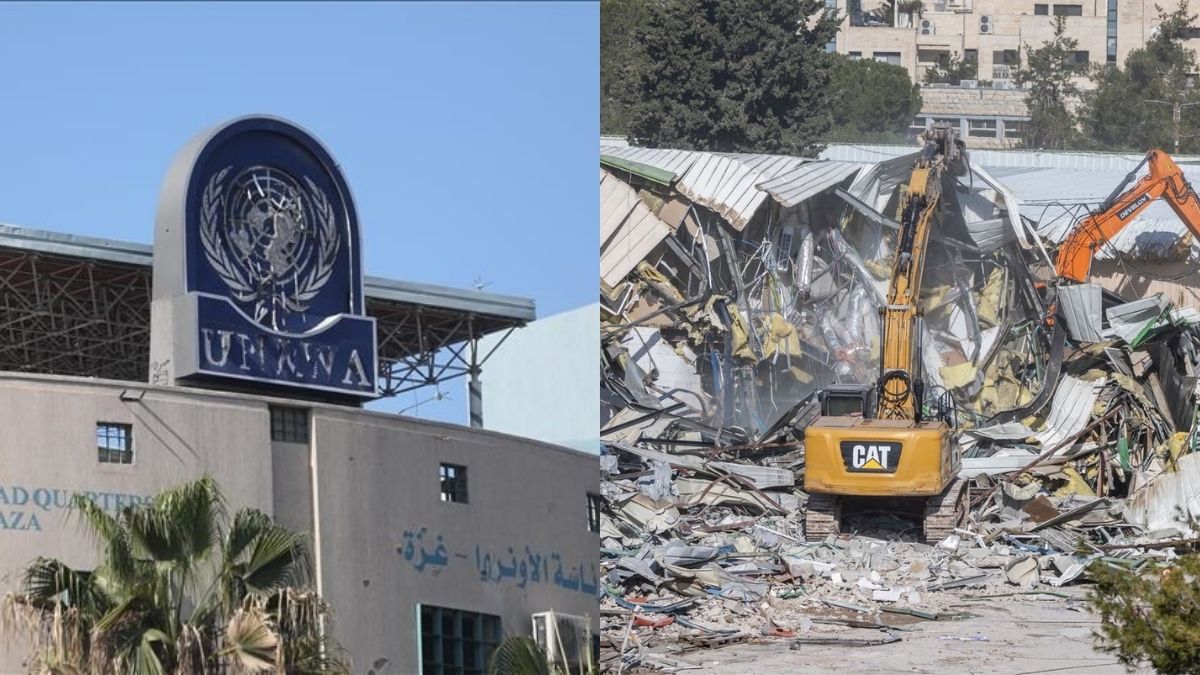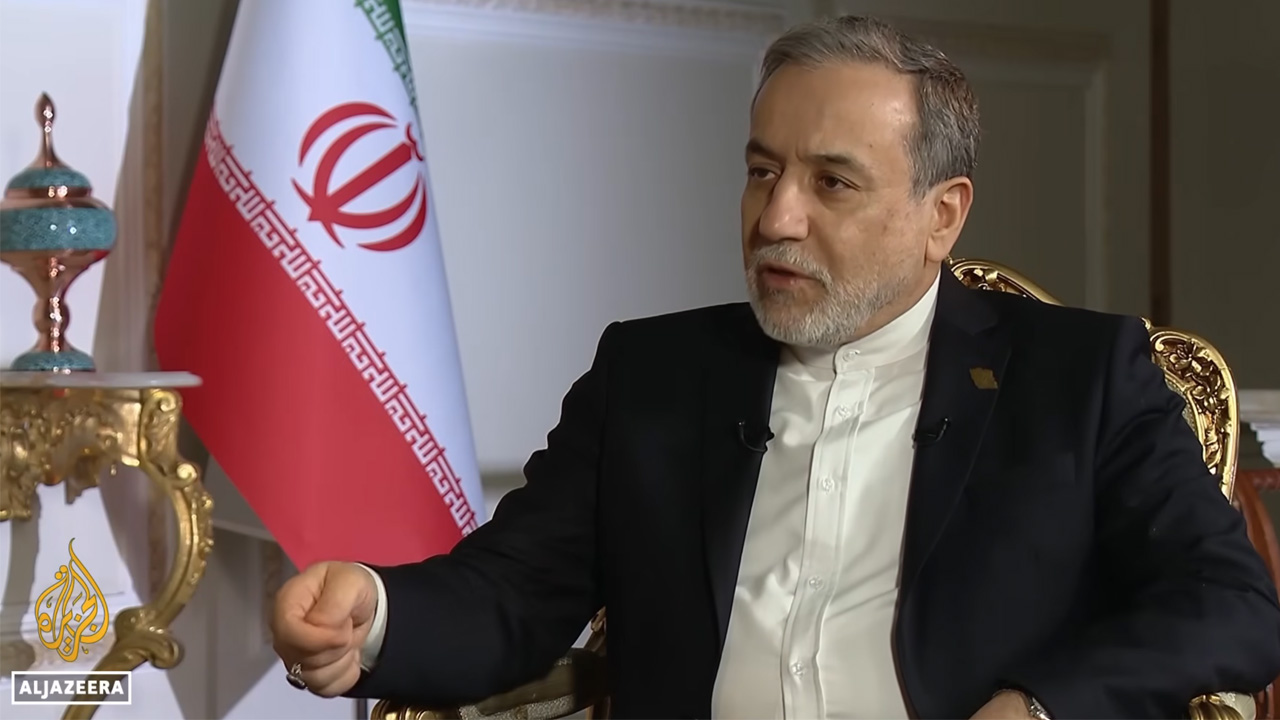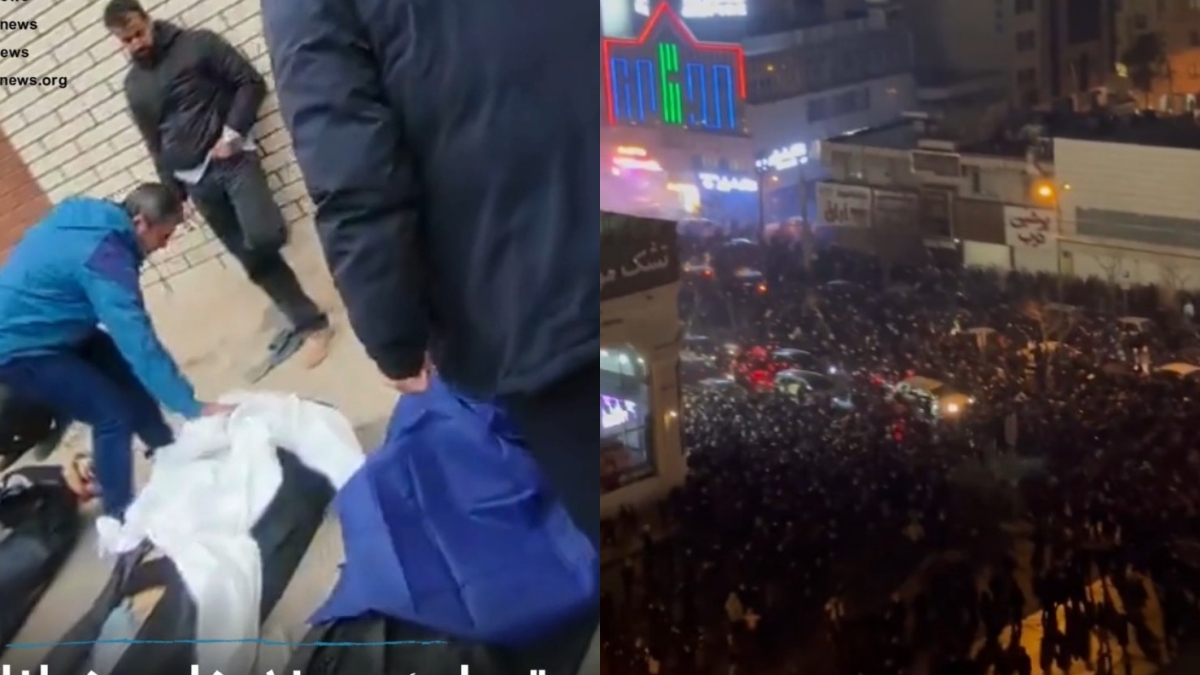Trump urges Israeli president to pardon Netanyahu in ongoing corruption trial
U.S. President Donald Trump has formally requested that Israeli President Isaac Herzog pardon Prime Minister Benjamin Netanyahu, calling his corruption trial politically motivated. The appeal raises renewed scrutiny of American involvement in Israeli internal affairs.

- U.S. President Donald Trump has sent a formal letter to Israeli President Isaac Herzog, urging a pardon for Prime Minister Benjamin Netanyahu.
- Netanyahu is on trial for bribery, fraud, and breach of trust, but denies all allegations and calls the charges politically motivated.
In a direct intervention into Israeli domestic affairs, U.S. President Donald Trump has sent a letter to Israeli President Isaac Herzog, urging him to grant a pardon to Prime Minister Benjamin Netanyahu, who is currently on trial for corruption charges.
The letter, dated Wednesday, 12 November 2025, describes the proceedings as a “political, unjustified prosecution,” and characterises Netanyahu as a leader guiding Israel from war toward peace.
Trump wrote, “As the Great State of Israel and the amazing Jewish People move past the terribly difficult times of the last three years, I hereby call on you to fully pardon Benjamin Netanyahu, who has been a formidable and decisive War Time Prime Minister, and is now leading Israel into a time of peace.”
Trump's appeal follows a public call for the same pardon during his address to Israel’s parliament in October, during a brief visit to promote his Gaza ceasefire plan. That speech was met with a standing ovation from Netanyahu’s parliamentary allies.
Netanyahu, the only sitting Israeli prime minister ever to stand trial, faces three separate cases involving allegations of bribery, fraud, and breach of trust. One case centres on claims that he received nearly 700,000 shekels (approximately US$211,832) in luxury gifts from wealthy businessmen in exchange for political favours.
If convicted, Netanyahu could face a prison sentence of up to 10 years, particularly under the bribery charges, which carry the most severe penalties under Israeli law.
The prime minister denies all charges, insisting the prosecution is politically motivated. He has repeatedly echoed Trump’s rhetoric, calling the trial a “witch hunt” driven by media bias and a hostile judiciary.
Herzog’s office confirmed receipt of Trump’s letter, but noted that under Israeli law, any individual seeking a presidential pardon must formally submit a request. “Anyone seeking a presidential pardon must submit a formal request in accordance with the established procedures,” the office said.
Israel’s presidency, while largely ceremonial, holds the legal authority to grant pardons under exceptional circumstances. However, Netanyahu has not made such a request to date.
Legal experts have expressed concern over Trump’s intervention. Amir Fuchs, a senior researcher at the Israel Democracy Institute and constitutional law expert, stated that pardons typically require an admission of guilt and remorse.
“A pardon without some kind of admission of guilt is very unusual and even illegal,” Fuchs said. He warned that issuing a pardon now could send a damaging message about accountability.
“The message will be undermining of rule of law,” he added.
Netanyahu responded to Trump’s support in a post on X late Thursday, though he did not directly address the pardon issue.
“Thank you, President Trump, for your incredible support. As usual, you get right to the point and call it like it is,” he wrote. “I look forward to continuing our partnership to bolster security and expand peace.”
Opposition leader Yair Lapid criticised the notion of a pardon, highlighting a key condition under Israeli law. “Reminder: Israeli law stipulates that the first condition for receiving a pardon is an admission of guilt and an expression of remorse,” Lapid posted on X.
Trump's appeal has also reignited debate over the extent of U.S. influence on Israeli affairs. During recent visits by senior U.S. officials—including Vice President JD Vance and Secretary of State Marco Rubio—Israeli media used the term “Bibi-sitting,” implying that the officials were monitoring Netanyahu’s compliance with the ceasefire deal.
Both the Israeli and American governments have denied any suggestion of undue influence, insisting that the relationship remains one of close cooperation.
Netanyahu’s trial, which began in 2020, has faced multiple delays, particularly since the Hamas-led attacks of October 2023, which triggered a period of war and political instability. The legal proceedings are expected to continue well into 2026.
President Herzog has declined to state how he would respond to a formal pardon request, though he has previously commented that the trial has become a source of national division and distraction. He has also expressed a preference for a negotiated settlement between Netanyahu and the prosecution.
Should a formal pardon request be filed, it would initiate a lengthy review process, including recommendations from the Ministry of Justice.
The final decision would lie with Herzog, who may face intense domestic and international scrutiny over how he handles the issue.
